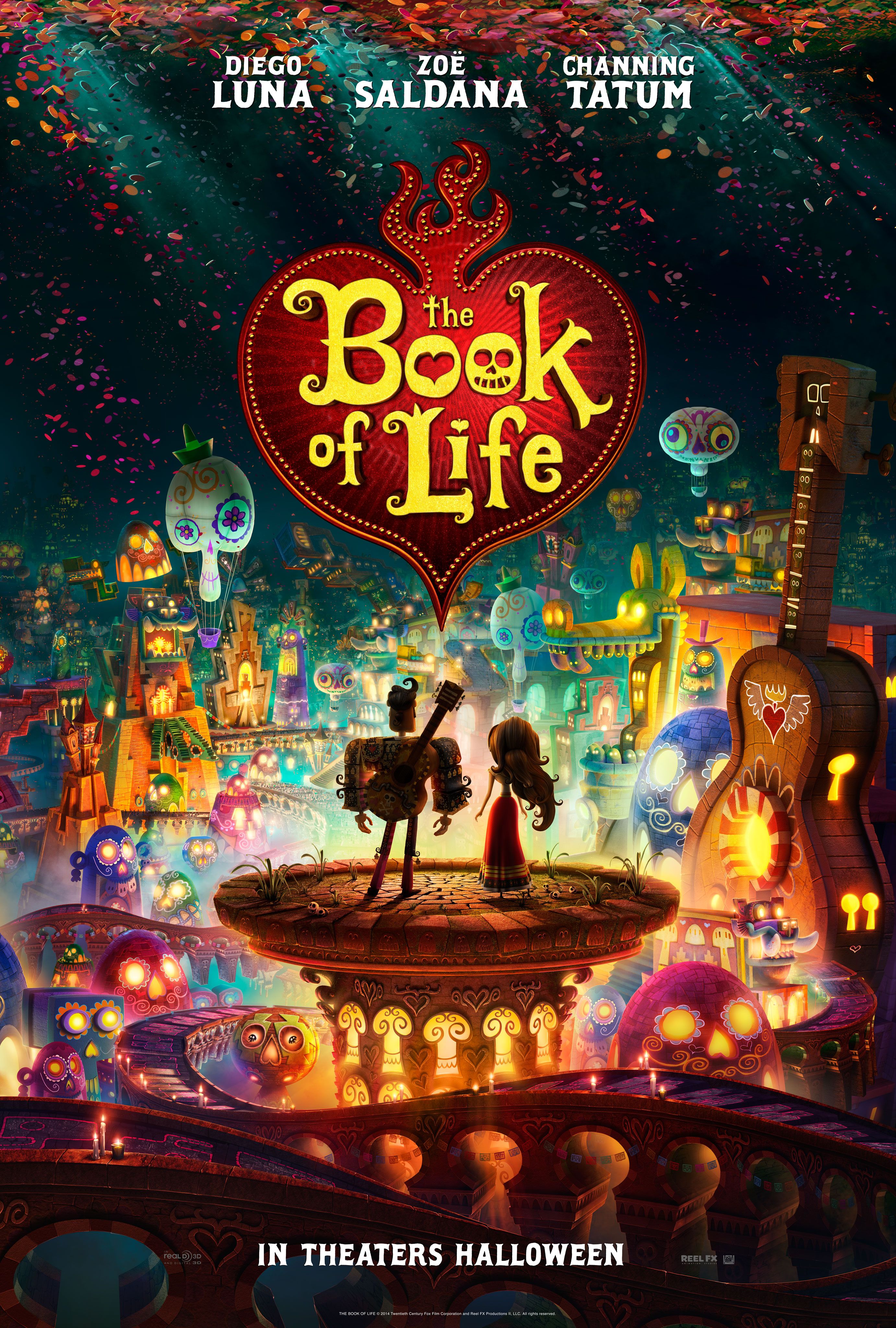Have you ever stopped to think about a truly remarkable idea, the "book of life"? It is a phrase that, in a way, captures something very deep about human existence and our place in the bigger picture. This special concept, you know, appears in some pretty important parts of scripture, offering us a glimpse into divine record-keeping and what it means to live a life that matters. So, too it's almost as if this idea holds a key to understanding a spiritual truth that has resonated with people for ages.
This particular phrase, "book of life," shows up in the Bible a very specific number of times. You see it only eight times, in eight distinct verses, and interestingly enough, all these mentions are found within the New Testament. It is, frankly, quite a focused appearance, suggesting its meaning is rather precise in its context. One of these mentions, for instance, comes from the apostle Paul himself, in his letter to the Philippians, specifically in chapter 4, verse 3.
The idea of names being written down, or perhaps not, carries a lot of weight. It hints at a record of those who are faithful, those whose lives reflect a certain kind of devotion. This concept, you know, links up with how we see our own purpose and the lasting impact of our actions. It's a bit like thinking about a grand story where every life plays a part, and some names are, well, noted in a very special way for all time.
Table of Contents
- What is the Book of Life in Scripture?
- The Lives That Shape Scripture and the Idea of Life
- Living a Life That Matters
- Frequently Asked Questions About the Book of Life
What is the Book of Life in Scripture?
The "book of life" is a concept that appears in the Bible, a sort of record, you might say, that holds deep spiritual meaning. As a matter of fact, the text tells us this phrase is found only eight times, spread across eight different verses. It is, quite simply, a New Testament idea, with all its occurrences located there. This makes it a rather distinct concept within the broader biblical narrative.
One notable mention, as I was saying, comes from the apostle Paul. In Philippians 4:3, he refers to this book, which is pretty significant since Paul was a key figure in spreading early Christian teachings. This particular reference, you know, places the "book of life" within the context of Christian fellowship and service. It shows that even early on, this idea held a place in their understanding of spiritual identity.
Then, there is the Book of Revelation, which talks about a "book of life," sometimes also called a "scroll of life." This is where the concept gets a bit more detailed. Revelation tells us that this book contains the names of people who are faithful. It is, essentially, a register of those who have remained true to their beliefs, those whose lives have shown a deep connection to their spiritual path. This suggests a divine record, a lasting account of devotion and commitment.
The idea of a name being in this book is, frankly, very important. It points to a kind of eternal recognition, a place among those who are considered righteous. So, in some respects, it is about more than just a list; it is about identity and destiny. This record, you know, speaks to the ultimate outcome for those who live a life of faith, offering a sense of hope and purpose.
We see, then, that the "book of life" is not just a casual mention. It is, actually, a significant spiritual symbol. It represents a divine accounting, a way of remembering those who have lived lives dedicated to something greater than themselves. This concept, you know, ties into the broader themes of salvation and eternal life that are central to the New Testament message. It is a powerful image, really, for anyone reflecting on their own spiritual journey.
The Lives That Shape Scripture and the Idea of Life
While the "book of life" is a New Testament concept, the entire Bible, in a way, explores what it means to live a life of faith and purpose. It is, after all, a collection of stories and teachings that chronicle the relationship of one man and... well, humanity's journey with the divine. This grand narrative, you know, is filled with examples of people whose lives, for better or worse, left a lasting impression, shaping the very fabric of scripture. These stories, you know, often highlight the challenges and triumphs of living a life of conviction.
The Writings of Moses and Solomon
Moses, for instance, played a truly monumental role in the early parts of the Bible. During a particular period of his life, he penned the first five books listed in the Bible: Genesis, Exodus, Leviticus, Numbers, and Deuteronomy. These writings, you know, lay down the very foundations of the faith, detailing creation, laws, and the journey of a people. It is, quite frankly, an incredible feat of authorship, shaping religious thought for millennia. His work, in a way, defines what it means to live under divine guidance.
Moses's own life story, however, also shows us the realness of human imperfection. His own sin kept him from entering the promised land, a stark reminder that even great figures face consequences. This part of his story, you know, teaches a powerful lesson about obedience and the limits of human action. The first miracle the Book of Exodus offers us, and for the first time since shortly after his birth, the age of Moses when an important event happens in his life, these details paint a vivid picture of his journey. His life, in short, was one of immense responsibility and profound personal challenge.
Then there is King Solomon, a figure known for his wisdom and, honestly, his prolific writing. He was, in fact, a very productive author, giving us the books of Ecclesiastes, the Song of Solomon, and the majority of the book of Proverbs. He even wrote one of the Psalms, Psalm 72. His writings, you know, often explore the meaning of life, wisdom, and the pursuit of happiness. He talks about building projects the king spent, which gives us a glimpse into his reign and his efforts to leave a mark. His reflections, quite simply, offer timeless insights into the human condition and what truly matters in life.
Solomon's works, especially Ecclesiastes, ponder the fleeting nature of worldly pursuits, suggesting that true meaning comes from something deeper. This is, you know, a very important aspect of understanding a life lived with purpose. His writings, in a way, serve as a guide for how to become a better person, by focusing on enduring values rather than temporary gains. They ask us to consider what truly makes a life worthwhile, a question that, frankly, resonates with the idea of a "book of life" where enduring worth is recorded.
Great Figures of Faith and Their Lasting Marks
King David is, arguably, one of the three greatest individuals in the Old Testament, standing alongside Abraham and Moses. These three giants of faith, however, far... well, they represent the pinnacle of spiritual leadership and connection with the divine. David's life, you know, is full of triumphs and struggles, showing a very human side to faith. His story, in a way, is about redemption and a deep devotion, despite his flaws. He is, quite simply, a central figure in the narrative of God's people.
Abraham, for his part, is one of the most blessed people in the Bible. His life is also referenced once in the New Testament, in Hebrews 11, which speaks to his enduring legacy of faith. Although scripture is not a comprehensive history of humans it does, however, chronicle the relationship of one man and... his descendants with the divine. Abraham's story, you know, is about trust and stepping out in faith, even when the path is unclear. His life, in a way, set a pattern for future generations, showing what it means to truly believe. He is, frankly, a foundational figure for many spiritual traditions.
Gideon, whose exploits are found in the book of Judges (chapters 6 through 8), is another compelling figure. His story is one of overcoming fear and leading with divine help, even when the odds seemed completely stacked against him. He was, in a way, an unlikely hero, chosen to deliver his people from oppression. His life, you know, demonstrates that strength can come from unexpected places when one trusts in a higher calling. It is, quite simply, a powerful example of courage and faith in action.
Daniel and his three friends, too it's almost, faced incredible challenges while living in Babylon. Out of a tradition of kings, they are likely made eunuchs for life, a difficult circumstance indeed. The Jewish historian Josephus alludes to this fact in his book on the history of... his people, confirming this rather harsh reality. Despite this, Daniel's steadfastness and his friends' loyalty to their beliefs are truly remarkable. Their lives, you know, show what it means to remain faithful under extreme pressure, demonstrating a commitment that transcends personal hardship. They are, essentially, models of unwavering conviction.
Stories of Strength and Prophecy
Samson, a figure known for his incredible physical power, has a name that comes from the Hebrew "Shimshon," which Strong's Concordance #H8123 tells us means "like the sun." This name, you know, hints at his radiant strength and perhaps his fiery nature. His story, in a way, is a complex one, full of both great feats and personal failings. He is, quite simply, a reminder that even those gifted with immense abilities can stumble. His life, you know, shows the interplay of divine purpose and human choices.
This series covers, in chronological order, the life and books named after those referred to as the major prophets. This short article will discuss Isaiah, who wrote from 740 to 686 B.C. Isaiah's writings, you know, are filled with messages of hope, judgment, and the coming of a deliverer. His prophetic work, in a way, shaped the spiritual landscape for centuries, offering guidance and foresight. He is, quite frankly, a pivotal voice in the biblical record, speaking to future generations about what it means to live a life aligned with divine will.
The lives of these figures, from Moses to Isaiah, collectively paint a picture of what it means to live a life that leaves a lasting impression. They show us, you know, the struggles and triumphs of faith, the importance of choices, and the enduring nature of spiritual commitment. Their stories, in a way, contribute to the broader narrative of scripture, which, while not a comprehensive history of humans, does chronicle the relationship of one man and... humanity with the divine. It is, essentially, a rich collection of experiences that can help us think about our own lives.
Living a Life That Matters
The concept of the "book of life," with names of faithful people recorded within it, truly invites us to consider how we live our own days. It is, you know, a gentle nudge to think about what kind of legacy we are building, not just for ourselves, but in a larger, spiritual sense. The idea of "how to become a better person" is, after all, a timeless pursuit, and these biblical accounts offer plenty of food for thought. They provide, frankly, a framework for reflecting on our actions and intentions.
When we look at figures like Abraham, one of the most blessed people in the Bible, or King David, a giant of faith, we see lives that, in a way, were lived with a profound connection to something beyond themselves. Their stories, you know, are not just ancient tales; they are examples that can inspire us to seek a deeper meaning in our own lives. It is, quite simply, about cultivating qualities that endure, like faith, courage, and a sense of purpose. This kind of living, you know, is what ultimately resonates with the idea of a name being kept in a very special record.
The "book of life" in Revelation, which is also called a "scroll of life," holding the names of faithful people, presents a powerful image of divine recognition. It suggests that a life lived with integrity and devotion is, actually, remembered in a profound way. This concept, you know, encourages us to reflect on our own spiritual walk, to consider what it means to be truly faithful in our daily lives. It is, in a way, an invitation to live with an awareness of a greater purpose, knowing that our choices have meaning. To learn more about spiritual growth on our site, you can find helpful resources. You might also want to explore this page about journeys of faith.
Frequently Asked Questions About the Book of Life
What is the purpose of the "book of life" mentioned in the Bible?
The "book of life," particularly in the Book of Revelation, serves as a record that contains the names of faithful people. Its purpose, you know, is to show who is considered righteous and who has remained true to their beliefs. It is, essentially, a divine registry of those whose lives reflect a deep spiritual commitment. This record, in a way, is tied to the ultimate destiny of individuals, symbolizing eternal recognition.
Who is written in the "book of life"?
According to the Bible, specifically in Revelation, the "book of life" holds the names of faithful people. This suggests, you know, that those whose lives are marked by devotion and adherence to their spiritual path are included. It is, frankly, about those who have lived a life of belief and spiritual integrity. The idea is that these are the individuals who are recognized in a very special way by the divine.
Is the "book of life" a literal book or a symbolic idea?
While the Bible speaks of a "book of life" or "scroll of life," its nature is typically understood in a symbolic way rather than as a literal, physical book. It represents, you know, a divine record or memory, a spiritual accounting of those who are faithful. It is, in essence, a powerful metaphor for God's knowledge and recognition of His devoted followers. This symbolic meaning, you know, carries great weight for believers.



Detail Author:
- Name : Lilian Rempel
- Username : yost.bethany
- Email : fadel.gardner@gmail.com
- Birthdate : 1977-01-18
- Address : 596 Carissa Estates Suite 640 Port Terrymouth, MN 80104-8576
- Phone : 531-965-7848
- Company : Goyette-O'Connell
- Job : Political Science Teacher
- Bio : Exercitationem accusamus consectetur omnis velit nesciunt non. Eum eligendi minus perspiciatis cupiditate ut nemo. Est enim alias cupiditate nostrum molestias sed.
Socials
facebook:
- url : https://facebook.com/carroll2002
- username : carroll2002
- bio : Ab cum accusamus eius ad praesentium praesentium.
- followers : 6973
- following : 1728
instagram:
- url : https://instagram.com/roscoe_real
- username : roscoe_real
- bio : Sint perspiciatis illum dolorem unde minima officia eveniet praesentium. Vel quo ducimus sequi.
- followers : 3094
- following : 2615

